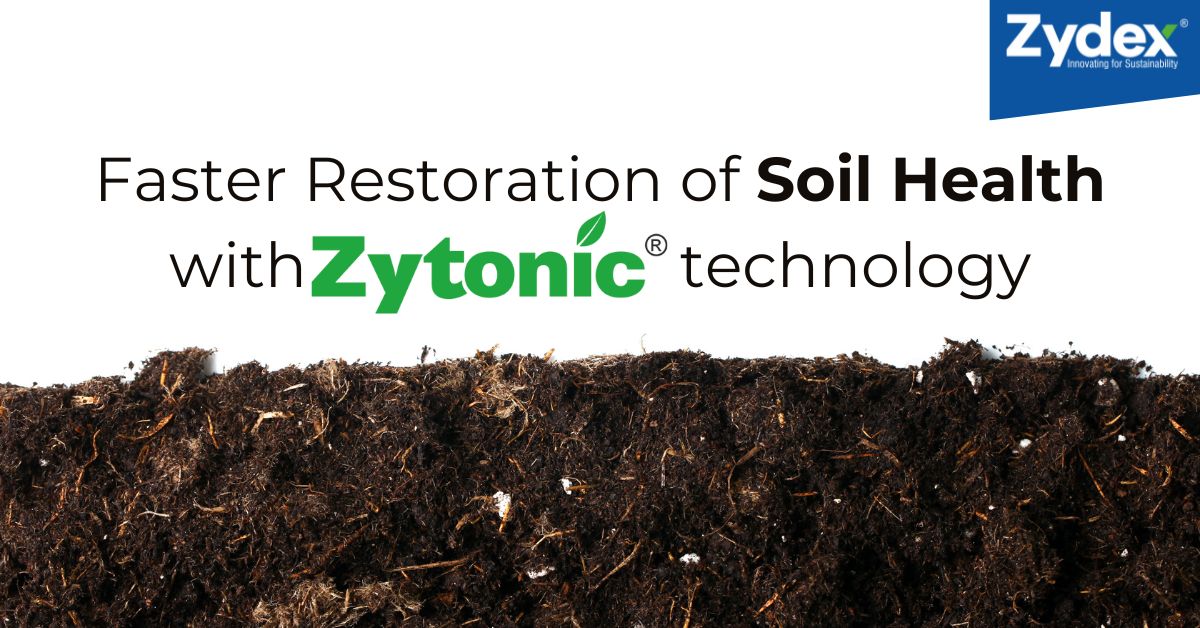Faster Restoration of Soil Health with Zytonic Technology
Zytonic Platform: A Global First & Need of the World
Every farmer desires high yields, but what if you could achieve this with sustainable farming practices? For decades, farmers relied on chemical fertilizers and pesticides to boost yields. However, this approach has resulted in the loss of soil health. Excessive chemical use has devastated soil health by killing the microbial population. Another concern for sustainable farming is the loss of organic matter which is critical for nutrient uptake by the plants and water storage capacity of the soils.
Modern agricultural practices like mechanical rototilling further aggravated the problem. This disturbance exposed organic matter to rapid oxidation, depleting and affecting the soil health. The consequences? Non-sustainable farms. The hard and compacted soil leads to stunted root growth, reduced water retention, and less percolation. The farmers are now increasing power to till the land that once was soft and porous and burning more fuel.
This breakdown in soil structure had a domino effect. Limited root development and dysfunctional mycorrhizal fungi (beneficial organisms) led to reduced biomass generation per acre due to declining soil health parameters. To address this, the farmers turned to higher and higher fertigation (applying fertilizers with irrigation) needing more and more water resulting in excess nitrates and ammonia in the plants, attracting more and more pests and diseases.
Furthermore, compacted soil means stagnant water on the surface, leading to runoff and washing away nutrients and resources.
The answer lies in improving the percolation capacity of the soils. The Zytonic biofertilizer usage makes the soil soft and porous, improving rainwater percolation, and reversing the runoffs and loss of nutrients.
This technology, combined with beneficial bacteria and other biological support methods, can soften and loosen compacted soil within two watering cycles, with lasting effects for up to 60 days. By following protocol, one can maintain softness and porosity throughout the year.
Healthy, porous soil promotes root growth, gas exchange, and water retention leading to an increase in microbial population and its activity, a key indicator of soil health. This allows plants to absorb nutrients more efficiently, while the denser root zone feeds the thriving microbial population. These microbes act as miners, extracting nutrients from the soil and feeding the plant, ultimately leading to improved food quality and taste & yields. This is how one will achieve sustainable farming.
The key to future sustainable farming practices lies in enhancing soil organic matter and improving soil health. A healthy soil ecosystem, with its extensive network of roots and microbial activity. Technologies like Zytonic promote this balance, fostering natural and organic farming practices to be achieved in one crop cycle with higher profits immediately.
By increasing organic matter, we can gradually build soil carbon content. This shift from depleted soils with less than 1% organic matter to a healthy 5-6% range is crucial for maintaining soil structure, higher humus content, and efficient moisture retention – all essential for soil health and sustainable farming.
The transition from chemical- and machine-dependent farming to a more sustainable approach is now achievable. Technologies like Zytonic, along with beneficial bio-inputs offer a profitable path for farmers during the transition to sustainable farming by increasing bio-nutrient availability and enhancing bio protection by addressing soil health and reducing and ultimately eliminating the need of chemical nutrients.







